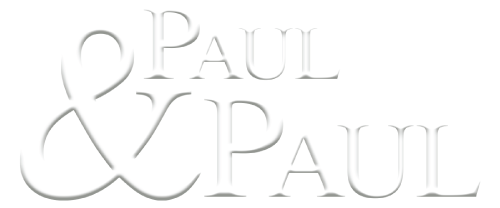Respecting intellectual property (IP) rights is essential for the success and longevity of small businesses. Failing to do so can result in costly legal battles and damage to your company’s reputation. By implementing a robust protection strategy, you can safeguard your business and ensure compliance with the law.
Types of Intellectual Property: Patents, Trademarks, Copyrights
Intellectual property falls into three main categories — patents, trademarks, and copyrights. Patents protect new inventions or improvements on existing ones. They give an inventor the exclusive right to produce, sell, and use their invention for a certain period, usually 20 years.
Trademarks, on the other hand, cover logos, brand names, slogans, and other business identifiers, protecting your brand identity from other companies that could use or replicate them.
Copyrights protect original works of authorship, including literary, dramatic, musical, and artistic works like novels, movies, songs, and computer software. Owning the copyright to a work grants you exclusive rights to reproduce, distribute, and display it.
History of Intellectual Property Rights
The concept of intellectual property rights has been around for centuries. The first patent law in the U.S. was in 1790. Its goal was to encourage innovation by granting inventors exclusive rights to their inventions for a certain period.
The concept of trademarks goes back even further, with makers’ marks used in ancient times to distinguish the goods of one artisan from another. Modern trademark laws evolved in the 19th century in response to industrialization and the growth of consumer markets.
Copyrights protecting literary and artistic works have roots in the “Statute of Anne” from early 18th century England. The U.S. included copyright protection in its constitution in 1790, underlining the importance of encouraging and safeguarding creative endeavors.
Legal Protection and Enforcement of Intellectual Property Rights
To protect your intellectual property, you must enforce your rights. Legal protection starts with registration. You submit patent applications to the U.S. Patent and Trademark Office (USPTO) while you register trademarks through the USPTO’s Trademark Electronic Application System (TEAS). The U.S. Copyright Office registers copyrights.
Once you’ve secured your intellectual property rights, you’re responsible for monitoring and enforcing them. If someone uses your intellectual property without permission (infringement), you may file a lawsuit against them. If proven guilty, they must pay damages and refrain from further infringement.
Steps to Avoid Intellectual Property Infringement
Understanding intellectual property rights and how they are legally protected and enforced provides a foundation for avoiding violations.
Conducting Comprehensive IP Research
Before introducing any new product or service, you must conduct comprehensive research on existing intellectual property rights. You can do this by utilizing online databases such as Google Patents, the USPTO database for patents and trademarks, and the U.S. Copyright Office records. By doing such research, you can better ensure that your business isn’t inadvertently infringing on existing rights.
Given the complexity of intellectual property law, it can be beneficial to consult with a legal team specializing in this field. Such professionals can provide valuable insights and help interpret complicated legal jargon.
Creating a Robust IP Protection Strategy
Following your research, you should take steps to secure your own intellectual property rights. This can involve applying for patents for any unique inventions, registering trademarks for your company name and logo, and securing copyrights for any original content. Counter to common belief, these processes can be relatively inexpensive, particularly considering the protection they provide.
Implementing Non-Disclosure Agreements
Apart from official registration, you can also protect your intellectual property by implementing non-disclosure agreements (NDAs) in your business dealings. This could be with employees, contractors, or partners, and ensures your business’s confidential information is legally protected.
Monitoring and Avoiding Infringement
Preventing infringement doesn’t end with securing your rights and conducting initial research. Make sure to conduct regular IP audits, keeping an eye on the marketplace to ensure that no one is infringing on your rights and that you are not unknowingly infringing on others’ rights.
Finally, consider implementing training programs for your employees to ensure they understand the importance of respecting intellectual property rights. By embedding this culture, you can significantly reduce the risk of infringement occurring within your organization.
Legal Assistance for Small Businesses
Even with a clear understanding of intellectual property rights and a proactive approach toward protecting them, navigating the intricate field of intellectual property law can be a complex and daunting task for many businesses. This is where professional legal assistance becomes invaluable.
Benefits of Partnering With Paul & Paul for IP Legal Assistance
Partnering with experienced intellectual property lawyers like the team at Paul & Paul provides the advantage of knowledgeable attorneys who can help in avoiding intellectual property infringement and ensure that adequate measures are in place to protect your valuable assets.
We can guide you through the process of applying for patents, registering trademarks, and securing copyrights. Our team can also conduct comprehensive IP audits, spot potential infringements, and provide helpful advice on potential legal actions to protect your rights.
Furthermore, we can assist in preparing and implementing non-disclosure agreements to ensure the security of your business’s confidential information.
Tailored Legal Solutions for Small Business IP Protection
At Paul & Paul, we understand that every small business is unique, with its own set of challenges and needs concerning intellectual property protection. This understanding drives our approach to delivering tailored legal solutions designed specifically for small businesses.
We take the time to understand your business thoroughly, its industry, products or services, and competitive landscape. This deep understanding allows us to develop a robust IP protection strategy aligned with your business goals and risk tolerance.
Whether you are in the early stages of developing your business’s intellectual property portfolio or dealing with an infringement dispute, Paul & Paul can provide the comprehensive legal support needed to navigate these complex issues.
Contact Paul & Paul for skilled IP legal assistance by visiting our website or calling (215) 568-4900 today.
